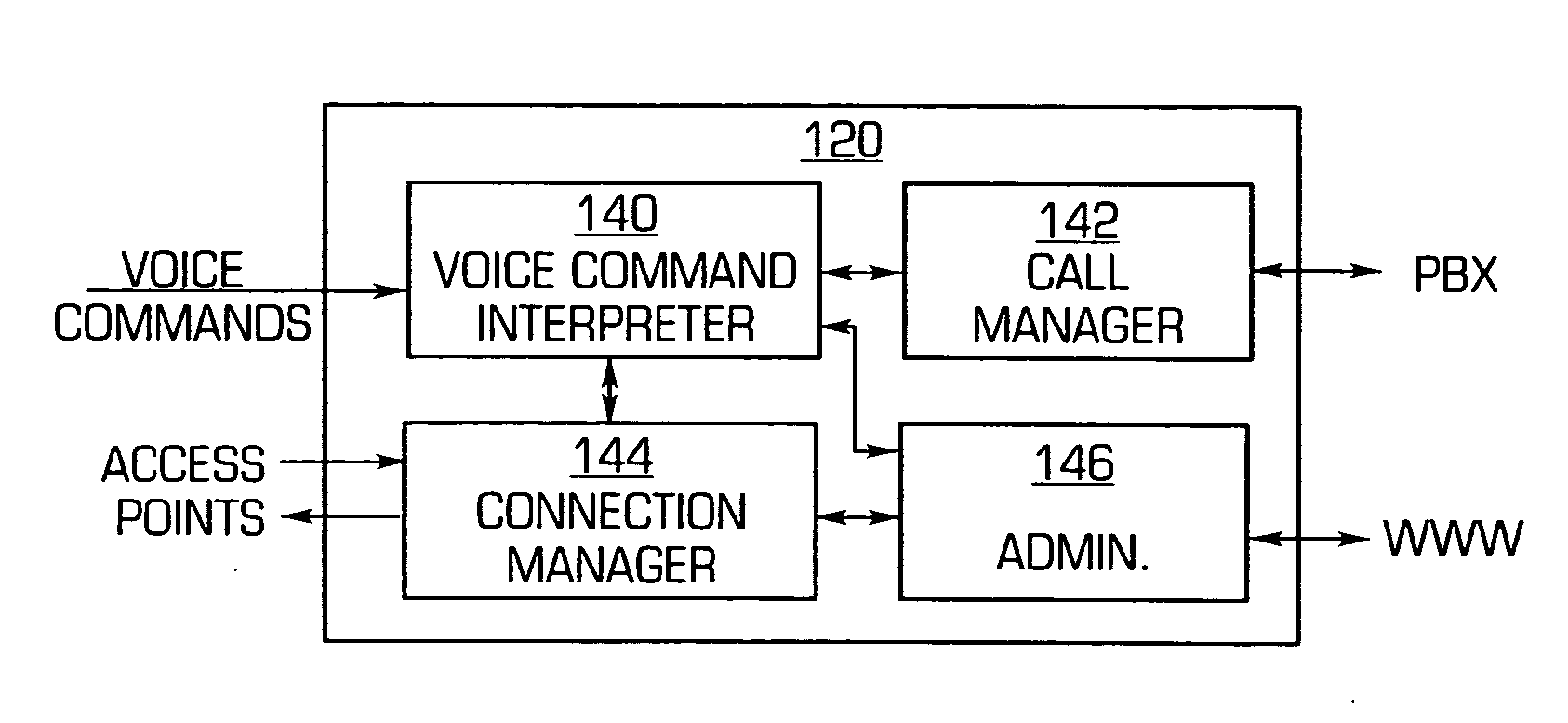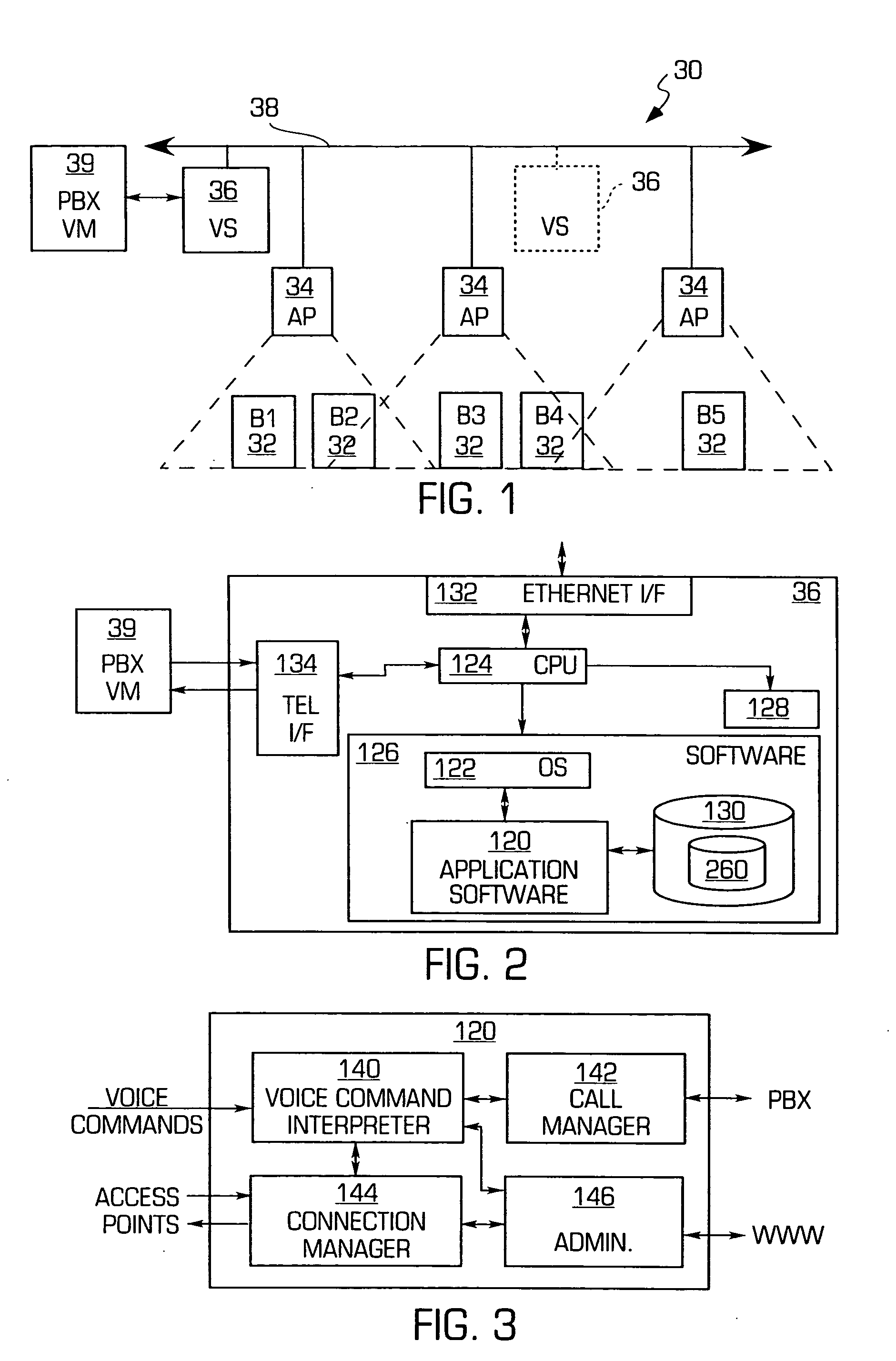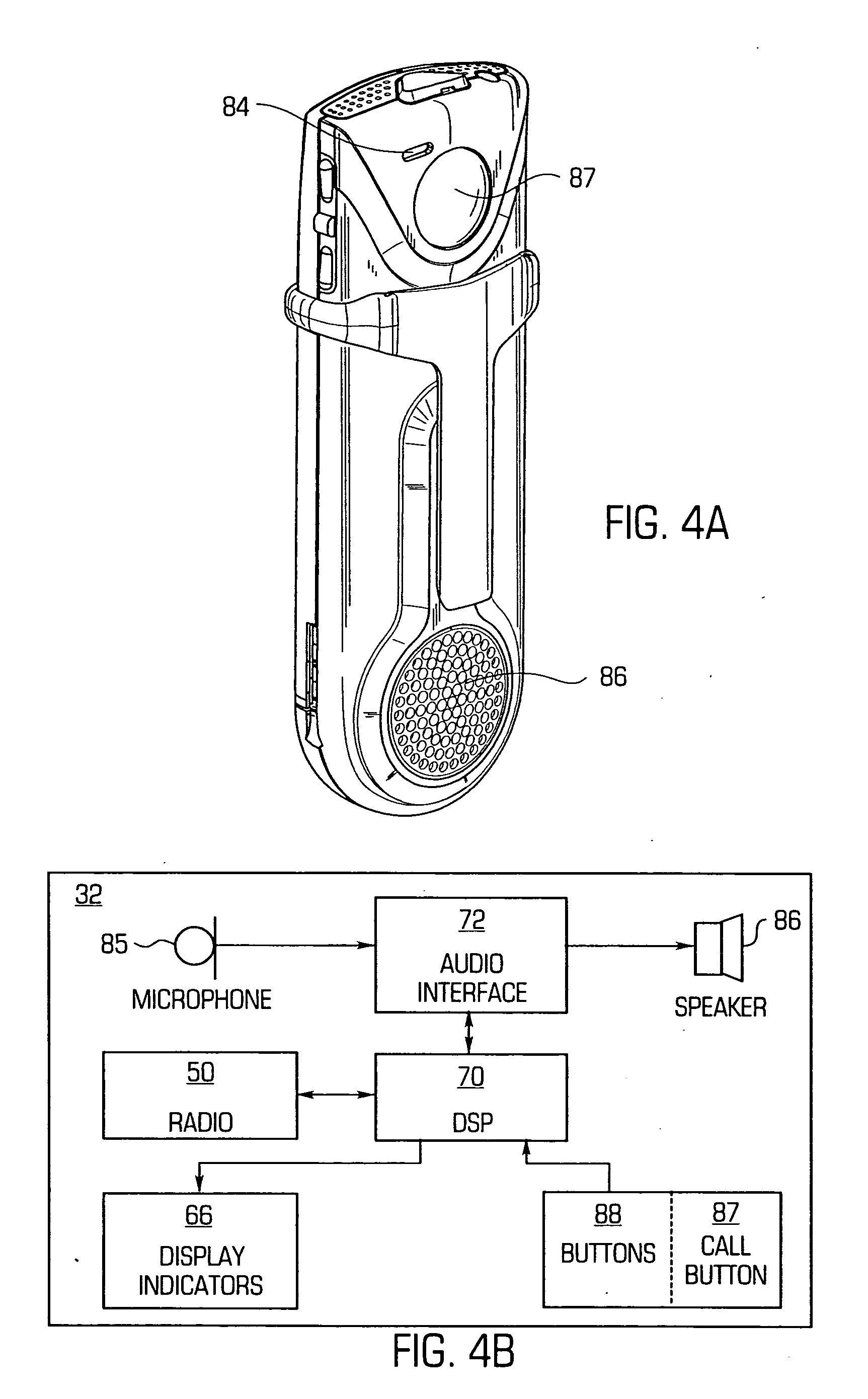[0009] The present invention advantageously provides a method, and an associated system, by which to improve the accuracy of a speech
recognition system when the size of the recognition space is large, especially when one or more of the following situations occur: entries in the recognition space change dynamically, the recognition space contains entries that are not phonetically distinctive, entries in the recognition space are easily mispronounced, and / or users of the system speak with accents.
[0015] Two aspects of the present invention, the Inner Circle mechanism and the Say Or Spell mechanism, each independently improves the accuracy of a speech
recognition system. The Inner Circle mechanism is based upon the principle that users are statistically more likely to contact a certain small subset of parties than they are to contact parties outside that subset. When used to filter a set of results returned by the speech recognition engine, the Inner Circle mechanism effectively reduces the size of a large recognition space. The Say Or Spell mechanism is based upon the principle that a speech recognition engine more accurately identifies an utterance that contains a large number of syllables. The Say Or Spell mechanism allows users to either speak the name or spell the name of a person they are trying to contact, and also to either speak the
verb or spell the
verb in the voice command. When users spell the name of a contact, for example, they are effectively uttering many more syllables than they would be when they simply speak the name.
[0016] In the first aspect of the present invention, the Inner Circle mechanism effectively reduces the size of the recognition space by filtering phonetically similar matches from the
result set returned by a speech recognition engine. The Inner Circle mechanism contains both a
database and an
algorithm. In the preferred embodiment, the Inner Circle
database maintains the set of users, groups, and
address book entries that an individual Badge user contacts most frequently. Each Badge user has his or her own Inner Circle
database, which is typically different from the Inner Circle database of another Badge user. Each user's Inner Circle database is the subset of recognition space elements that the user is most likely to reference in a command. The Inner Circle
algorithm prefers elements of the
result set that are members of the Inner Circle database of the user who issued the voice command. A communications system that needs to perform additional
processing on a recognition engine's
result set can use the Inner Circle mechanism as a filter. For example, if a result set contains the phonetically similar results “Call Phil Rains” and “Call Phil Rein,” the Inner Circle mechanism can filter the latter result when “Phil Rein” is not in the Inner Circle database of the user who issued the voice command, because that user is statistically unlikely to contact “Phil Rein.” An administrator may explicitly populate the Inner Circle for each user, or the individual users themselves may implicitly and adaptively populate the Inner Circle as the system learns their preferences.
[0017] In the second aspect of the present invention, the Say or Spell mechanism allows a person using a speech
recognition system to specify a party in a voice command by spelling its name or speaking its name, and also to specify a
verb in a voice command by spelling the verb or speaking the verb. In the preferred embodiment, a Badge user can reference a person, for example, by spelling the first name, last name, or both. Similarly, a Badge user can reference a place or a group by spelling its name. For example, to call the user “Peter Wong,” a Badge user can utter the commands “Call P-E-T-E-R,”“Call W-O-N-G,” or “Call P-E-T-E-R-W-O-N-G.” The spelling usually has value even if it is incorrect, as the speech recognition engine will still likely take the misspelled name as a best match for the utterance, as long as most of the letters are correct. Spellings add so much differentiation to most names that they are often good for referring to a name when a similar name is already in a user's Inner Circle. Normally an Inner Circle entry takes precedence in interpreting an utterance, making it difficult to refer to the non-Inner Circle name. By specifying a spelling, a Badge user can force the system to differentiate between an Inner Circle name and another name, thus excluding the Inner Circle name from the result set.
 Login to View More
Login to View More  Login to View More
Login to View More 


